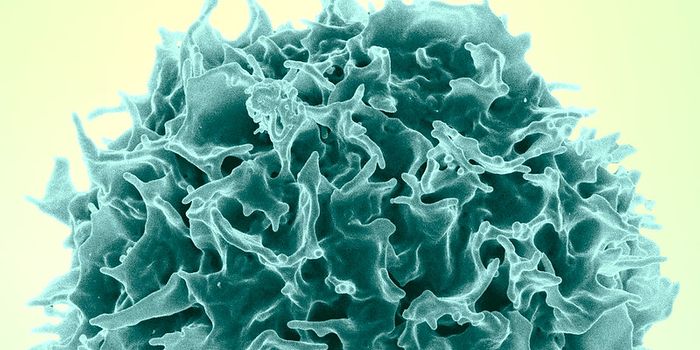Two B Cells Types, Two Completely Different Life Roles
A specialized form of immune B cells exist in the human spleen to protect the body from specific types of bacteria. But there is a unique molecular process that needs to happen in order for immature B cells to become these specialized cells over other types of cells.
From The Flanders Institute for Biotechnology (VIB), researchers investigated the pathways behind the differentiation of specialized B cells called MZB cells, named for the marginal zone in the spleen where they congregate. The spleen plays the important role of filtering the blood for bacteria and other foreign particles.
MZB cells are involved in antibody “training” to prepare them for the fight against infectious disease, mainly producing antibodies that target encapsulated bacterial like pneumococcus. However, MZB cells are not the only immune cells doing work in the spleen. They share some space with another B cell subtype called follicular B cells, so what makes precursor cells “decide” to become MZB cells versus follicular B cells?
"We had a 'eureka!' moment after discovering that a little-known protein, Taok3, brings a certain proteinase, ADAM10, to the surface of the immature B cell that triggers its development into an MZB cell,” explained VIB’s Hamida Hammad. “Without that special event, immature B cells can only develop into follicular B cells." Hammad and the team from VIB started their study with the knowledge that Taok3 protein triggers, somehow, the development of MZB cells.
Identifying the role of Taok3 protein in the development of MZB cells provides new possibilities for treatments of genetic conditions, asthma, and diabetes, which might rely on the immune response which includes MZB cells.
VIB researchers confirmed the role of Taok3 in mice studies by removing the Taok3 gene. Without it, the mice would make almost any B cell type except MZB cells. They were also especially susceptible to respiratory infection from pneumococcus bacteria.
"With an abundance of only follicular B cells, Taok3-free mice are less capable of fighting these types of bacteria effectively,” Hammad said.
“This research has generated insights that are very relevant to new therapies to a range of important diseases,” said VIB’s Bart Lambrecht. “It goes to show that basic science sometimes leads to unexpected - and important - applications."
The VIB’s new study was published in the journal Nature Immunology.
Source: The Flanders Institute for Biotechnology (VIB)









